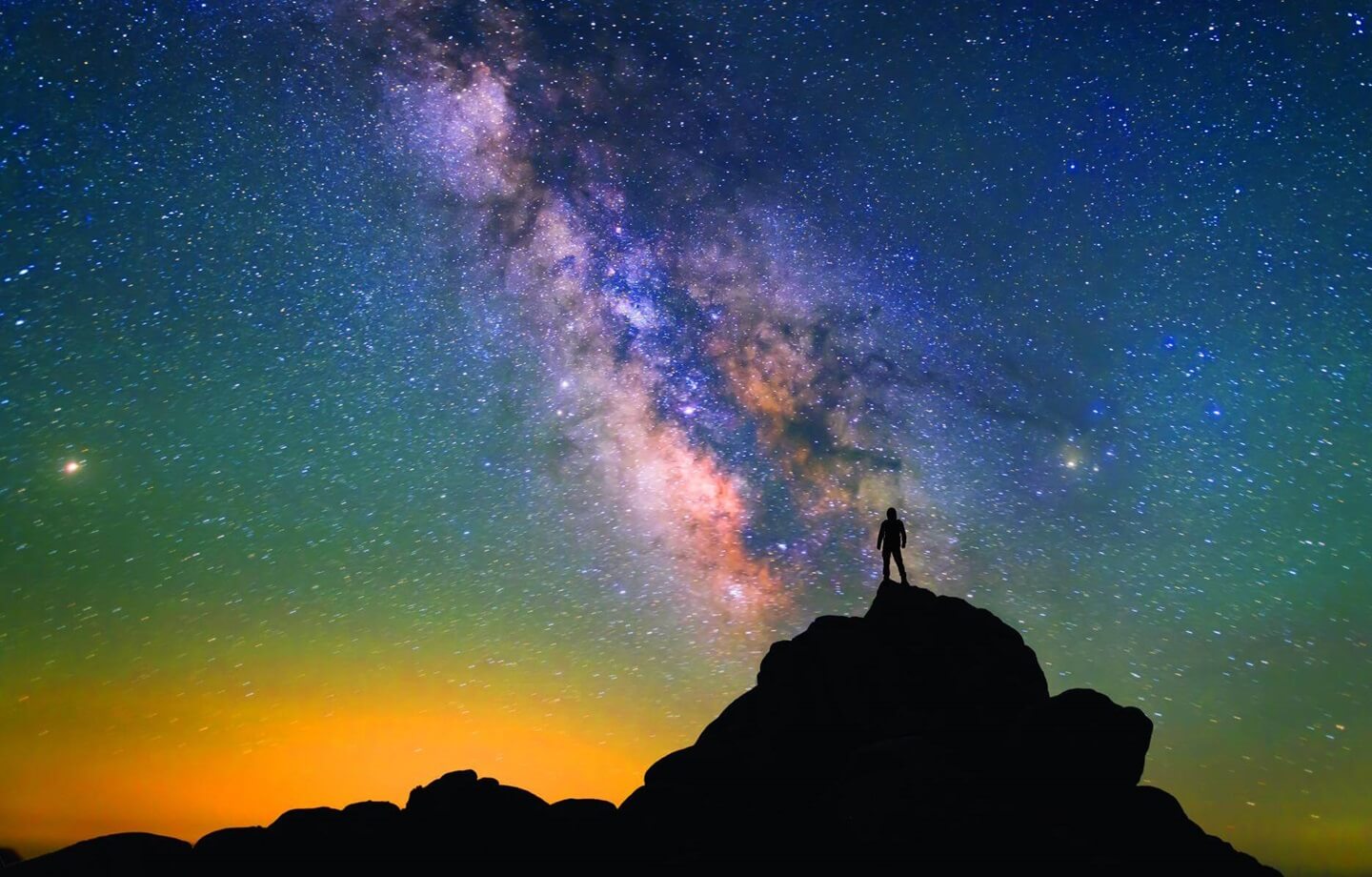
- This event has passed.
A Theology of Darkness
Sunday, January 28 @ 10:30 am - 11:30 am


“We need a new theology of darkness—a new way to relate to the darkness, blackness, and brownness that surrounds us.” Inspired by Minister and Poet Kristen L. Harper, we are invited to explore and transform our perceptions of blackness. Join us as we lift up the strength and beauty of the Darkness Divine. Rev. Dr. María Cristina Vlassidis Burgoa will be preaching.
How to Attend
We encourage masks in all buildings. Read more about our In Person Guidelines here.
• To virtually attend, please Zoom in using room number 989 3107 9078, passcode: chalice.
• To phone into the service, call 669-900-6833, Meeting ID: 989 3107 9078.
For those joining, please mute as soon as you enter the room, so everyone can hear. Please note, the services will be recorded, but at this time, there are no plans to share the recording.
More Information
Religious Education for children and youth happens during worship on Sundays. Children and youth arrive in the Sanctuary for the just a little bit and welcome in Sunday with a story and song. Then, they attend their own programs in the Education building. Learn more here!
If you don’t have a chalice, but want to light one, check out our Making a Chalice at Home page.
In person services are followed by coffee hour.
Children’s Story
Sermon Audio
A Theology of Darkness
Sermon Text
Ed Borroff (he/him)
A couple of Christmas Eve services ago, I heard Rev Maria Christina said “We are celebrating the coming of the light”. And I thought, why don’t we celebrate the coming of the dark? And why is it that when the earth is resting and renewing and regenerating itself, we have 3 of the biggest and busiest holidays of the year? Why don’t we allow ourselves to be fallow and, during the longest nights of the year, and pay attention to what is going on inside.
Today I would like to talk about the inner darkness.
I believe in God. And originally my pronoun for God was He. But when I learned about how it impacted women, I thought it would be good to change it to She for a while to see what I learned. It didn’t work as it would be like saying, “You should get electricity in your house. She will make your life easier”. When I learned about the gender spectrum, They seemed a better pronoun as it would allow for a lot of different qualities to be included in the concept of God and a certain amount of fluidity. But, for some reason, it didn’t capture my experience of God. Then, this Fall, I was thinking the mycelium for mushrooms runs throughout your lawn and the mushroom is the flower, it seemed like that was more like my concept of God. And soon after that, the pronoun We came to mind, and it quickly changed to Us. When I said Us, something shifted in my consciousness and I became more present and centered, my mind slowed down and I was calm. I am telling you this because I want to be in that consciousness when I tell these next stories.
Now that I’m older, I sometimes wake up in the middle of the night and I think about the future and am scared. I can’t stop my thoughts. So I pray for my mind to slow down so I can fall asleep. And sometimes, I enter a space where I am present, and centered, and time stops. Then, after a few minutes, I am back in bed, in the dark of night and I can fall asleep. I am grateful for the blessing of those moments.
The next story is from a CD I had about mentoring. A group of native Hawaiians wanted to learn the traditional ways to navigate outrigger canoes in the ocean, like when Hawaiians and Polynesians sailed great distances in the open ocean between islands. They found an old man who knew the traditional ways to navigate the ocean, and he agreed to teach them. The first thing he did was to take them out in a canoe and have them take off all their clothes and lay face down in the canoe so they could feel the ocean in their body. In the next few months, he took them out and taught them how to paddle together, how to read the wind and the waves and how to navigate by the stars. There was one young man who hung around the old man, asking questions and learning as much as he could about navigating and the ocean. As a final lesson, they were going to go out at dusk and paddle through the night in the deep ocean, to another island. The old man told the young man who had been spending the most time with him and had been navigating the boat during practice that he would be the navigator on this journey. The old man would accompany them, but he would sit in the front of the boat and not say anything, even if they got in trouble. On the chosen night, they shoved off at dusk and headed out. They could see the stars and the winds were fair. But soon, the wind grew stronger and the waves bigger and clouds covered the stars. They were in the middle of a big storm. The wind was blowing in all directions and the waves were crashing dangerously around them. The young navigator didn’t know what direction to head. He looked to the front of the outrigger canoe and he could see the old navigator. True to his word, he offered no direction nor counsel. Then, as they kept paddling through the storm, gradually the young navigator found deep inside, he knew what to do, and where direction to go, and he guided them to safe harbor.
An inner knowing. A sensing.
When I close my eyes in the night, there is only dark. There are no stars to navigate by, no east, no south, no west, no north. There are no points of reference.
Now, at time, when things aren’t going well, and I am I falling apart inside, self critical and angry at myself and scared. It takes a while to pull myself together. So I wanted to create something solid inside, a sanctuary inside, that was solid, and unwavering in loving and accepting my whole self.
When I was thinking about this inner Sanctuary, I was reading a book by Racel Naomi Remen who used the word querencia. I looked up a definition and the one I liked the most was, “Querencia can be a physical place: at the foot of a favorite tree, a cozy window seat, a forest path. Or it can be a place inside us where we breathe into our own strength and feel our own certainty, a certainty that we don’t need to share with anyone else or proselytize to others to convince ourselves”.
Rachel Naomi Remen in her book Kitchen Table Wisdom writes, “For humans the querencia is a place in our inner world. Often it is a familiar place that has not been noticed until a time of crisis. Sometimes it is a viewpoint, a position to conduct life, different for each person. Often it is simply a place of deep inner silence.
We are water bearers, living in the interplay of the earth and sky.
My hope is that someday, when I am in my deep inner silence, experiencing my wholeness, my querencia, that I will sense the invisible, sacred mycelium that run through the earth and the sky and the light and the dark, and we will experience US.
The Divine Darkness
Blackmail. Black market. Black sheep. Blackball. Blacklist. The Dark day of the soul.
What comes to mind when you hear these words?
Have we become accustomed to using language that equates black with negative/bad/evil?
In 2021 The UU World magazine published Rev. Kristen Harper’s article entitled A Theology of Darkness. Rev. Kristen is a UU minister who identifies as a spiritual humanist and in her article, she invites us to consider a new way of relating to the darkness. She begins by focusing on how our language, when referring to blackness or brownness, is disempowering. She writes that even those who might find in observing the seasons an opportunity to reflect on the potentiality of winter and that which is latent within the dark earth, still don’t really celebrate darkness, but yearn for and place more importance on the return of the light. As a student of religion and race, Rev. Kristen Harper encountered time and time again language that equated darkness and blackness with something negative, ugly, evil, sinful, dangerous, without honor, and that even represented the absence of God. She makes a direct connection between the use of such racist language and the dehumanization of black people.
Rev. Harper proposes that we must construct a Theology of darkness so that we may “relearn to appreciate the darkness.” A new theology that recognizes blackness, darkness, as healing, promising, life giving, and a conduit to the divine. For Rev. Kristen, the divine resides in us, as a powerful energy, as love, capable of creating while being part of creation. Rev. Harper describes a theology of Darkness as “…[A] theology rooted in relationship with one another, the earth, God, the spirit of life, all that is holy, and the higher good that can occur when we recognize and affirm our interdependence. This relationship impacts how we view and treat others, and how we respond to injustices…”
The term theology derives from the Greek theologia (θεολογία), a combination of theos (Θεός, ‘god’) and logia (λογία, ‘utterances, sayings, oracles’)—the latter word relating to Greek logos (λόγος, ‘word. As an academic discipline theology is the systematic study of the nature of the divine, or more broadly of religious belief. While in seminary, my courses in theology taught me to analyze biblical passages, the nature of religious language, and to interrogate the role of God, God’s relationship to humans, to nature, and how God/The Goddess reveal themselves to humankind. In Feminist Theology we went further in the study of the word within the context of the patriarchy. We examined Biblical narratives that contained many instances of physical, sexual, and religious violence against women. From Professor Elisabeth Schussler-Fiorenza, we learned to apply hermeneutics of suspicion and to reinterpret scriptures as we read about the lives of Hagar, Tamar, and others. We learned not only to interpret the words, but also to interpret the silence and absence of women. Applying a subversive feminist lens and critical analysis we learned the value of questioning, challenging, and re-envisioning the relationship of women to the divine. Likewise, Latin American Liberation Theology, Womanist Theology, Eco-Feminism, and Queer Theologies revealed the voices of the oppressed, lifted up the poor, indigenous people, Black people, queer people, and gave us the tools that would unpack and dismantle theologies of oppression and propitiate the decolonization of our theological language, using critical analysis tools and methodologies rooted in a liberatory exegesis. At the heart of Latin American Liberation Theology is the relationship between God and us mortals. Liberation theology humanizes god as a suffering god, a god dwelling among the poor and thus experiencing hunger, homelessness, the desperation of seeing your children die of hunger, as a god that would fight for freedom, against dictatorships, joining the legions of poor people, demanding justice. In Liberation Theology there is a relationship, between God and the people, the oppressed. God is on their side and demands that we too be on the side of the poor and marginalized. Liberation theology is relationship rather than dogma. Feminist Latin American Theology focuses on the particular oppression suffered by poor, indigenous, and Black women.
Beloveds, today we are invited to reflect on our language and our relationship to the divine, however you define it. Rev. Kristen offers us these questions to guide our reflections:
- What is your relationship to god, to the holy, to nature, to humanity?
- What is your relationship to black, brown, and darkness?
- What is some positive imagery of darkness and blackness?
- How might your understanding of black and dark deepen your relationship with people who are black or brown?
The Rev. Dr. Kristen Harper is the minister of the Unitarian Church of Barnstable where she has served for nineteen years, having previously served the Unitarian Universalist Society of the Daytona Beach Area. She graduated from Meadville Lombard Theological School in 1999 and lives with her two cats, Tristan and Advent, in Marstons Mills, Massachusetts.
The Darkness Divine-By Rev. Kristen L. Harper
God resides in depths of darkness
As in the light of sunbeams
The moon shines brighter surrounded by night
And life is secure in the black waters of the womb
As the night sky littered with stars demonstrates
Again and again
There is beauty in darkness and beauty in light
One no more brilliant than the other
One no more necessary than the other
One always complementing the other.
Without the heated darkness of the universe
Splitting neutrons, electrons, and protons from atoms,
Life and light would never be.
The task for us today
Is to recognize God in both.
To see the divine in the rich brown earth
The textured black walnut
As well as the white snow and the pale pink jellyfish
To see the sacred in the panther and the swan
To embrace the dignity of the Black Madonna
As it is embodied in the Virgin Mary
The task for us today
Is to look into the multifaceted colors of the onyx
And see the miraculous spectrum of color
Produced in the prism of a diamond.


